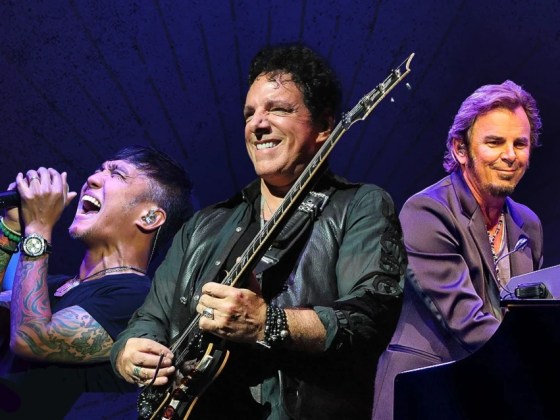The iconic metal scene of the 1980s might be approaching its twilight years, according to TWISTED SISTER founding member Jay Jay French. In a candid discussion on a recent podcast, the legendary guitarist shared his perspective on why the era that defined heavy metal for a generation is coming to an end, and surprisingly, he’s not mourning its demise.
French, who has been a prominent figure in the rock and metal world for decades, offered a refreshingly honest take on the current state of the metal scene. His comments come at a time when many bands from the ’80s continue to tour, but the faces in the crowd are getting older, and the reality of mortality is becoming increasingly apparent.
The Economics of Nostalgia
During his appearance, French discussed the practical realities facing bands from the golden era of metal. The musician pointed out that many artists from that period are now in their late sixties and seventies, and the physical demands of touring combined with the natural aging process are creating an inevitable endpoint for this chapter of rock history.
What makes French’s perspective particularly interesting is his matter-of-fact acceptance of this transition. Rather than clinging to the past or expressing sadness about the changing landscape, he embraces the evolution of the music industry with an almost entrepreneurial mindset. This pragmatic approach reflects his long-standing reputation as not just a musician, but also a savvy businessman who understands the industry from multiple angles.
The Generational Shift
One of the most compelling points French raised concerns the audience demographic for ’80s metal bands. The fans who packed arenas and bought millions of albums in the 1980s are now approaching retirement age themselves. This creates a natural timeline for the viability of touring acts from that era. As French observed, there’s a limited window for these bands to continue performing at the level their fans expect.
The guitarist’s comments also touched on the reality that younger generations have their own musical heroes and movements. While there will always be some younger fans who discover and appreciate classic metal, the core audience that drives ticket sales and sustains touring careers is aging out. This demographic reality is something that cannot be ignored, no matter how timeless the music might be.
“I’m looking forward to it. The whole metal ’80s thing is ending, and I think that’s actually a good thing. We’ve had an incredible run, but everything has its time, and that time is coming to a close. The audience is getting older, the bands are getting older, and at some point, you have to be realistic about what’s sustainable.”
A New Chapter for Metal
French’s forward-looking attitude extends to his thoughts about what comes after the ’80s metal era finally concludes. Rather than viewing this as the end of heavy music, he sees it as an opportunity for evolution and renewal. The music industry has always been cyclical, with new movements emerging as older ones fade into history books and classic rock radio formats.
The TWISTED SISTER guitarist suggested that the end of the ’80s dominance will create space for new voices and new interpretations of heavy music. This perspective aligns with the natural progression of artistic movements throughout history. Just as the bands of the ’80s built upon and ultimately superseded the hard rock acts of the ’70s, new generations of musicians will create their own defining sound.
The Business Reality
French has never been shy about discussing the business side of the music industry, and his comments on this topic were no exception. He acknowledged that touring economics play a significant role in how long bands can continue. The costs of mounting major tours continue to rise, while the pool of potential ticket buyers for ’80s metal acts is, by definition, shrinking.
This economic reality is compounded by the physical toll of touring. Playing high-energy rock shows night after night is demanding for musicians of any age, but becomes increasingly challenging as artists move into their senior years. French’s candid acknowledgment of these realities demonstrates a level of self-awareness that’s often missing from discussions about legacy acts.








